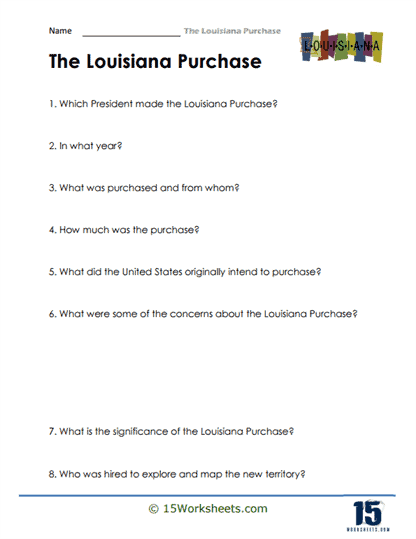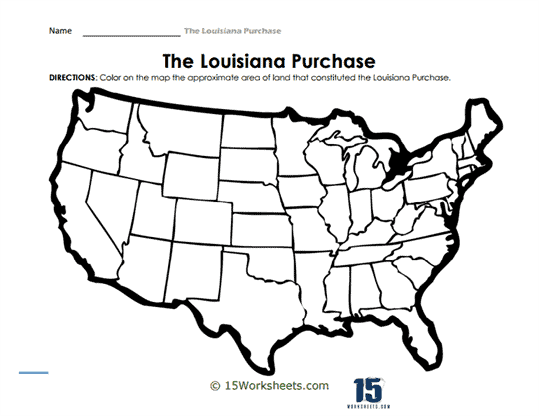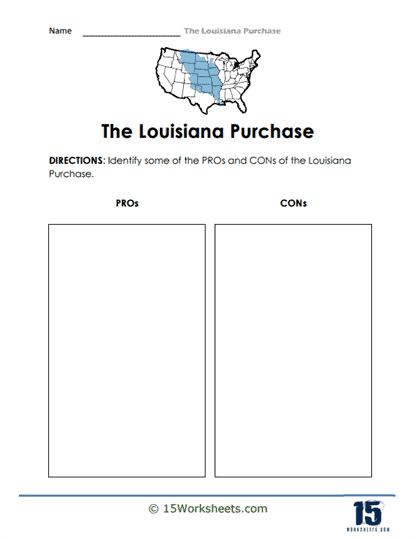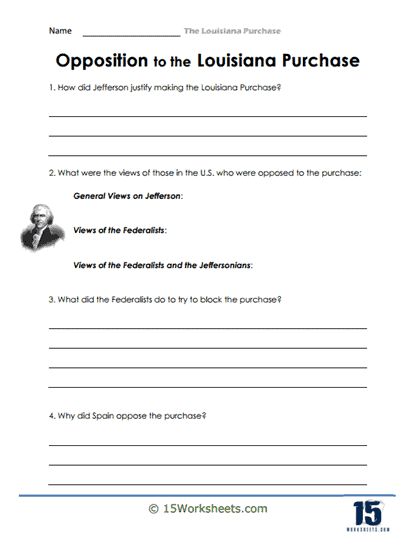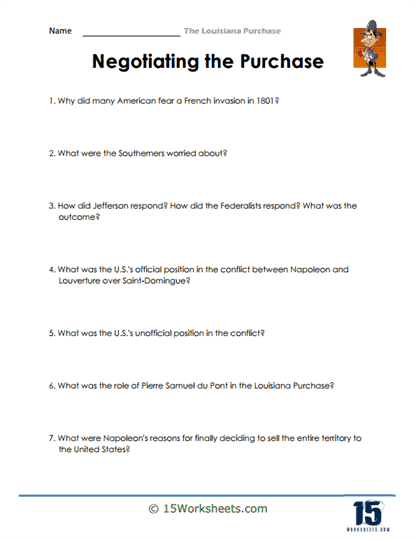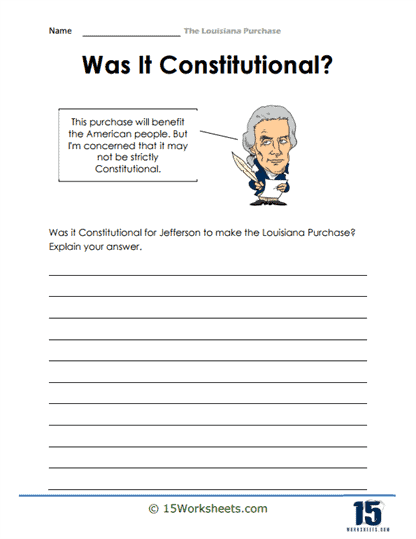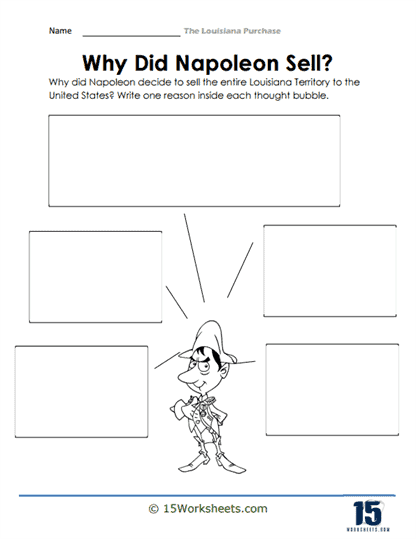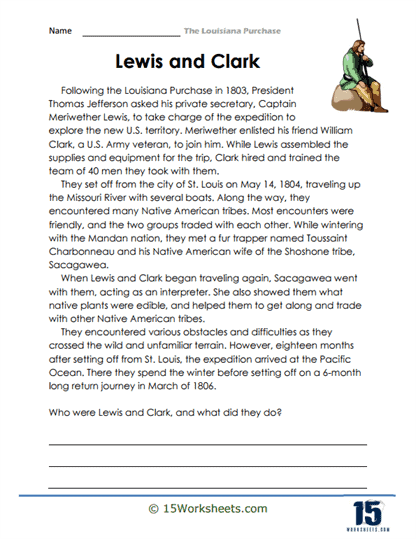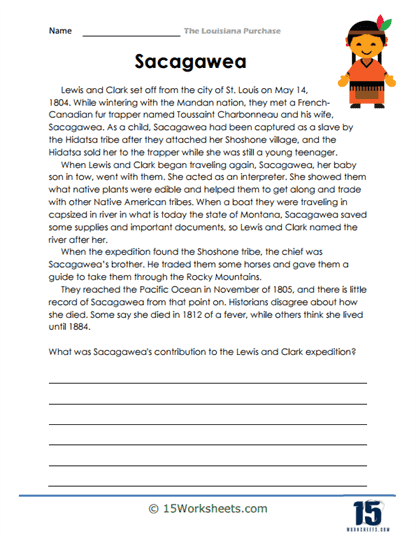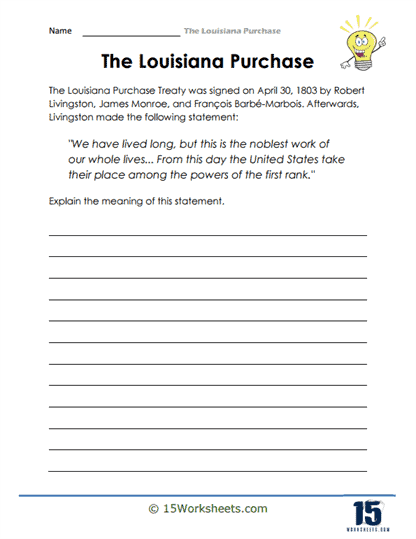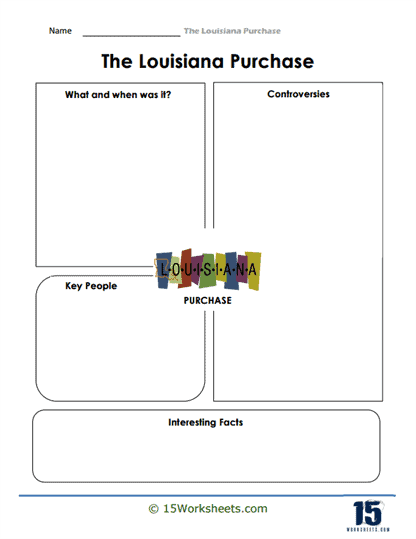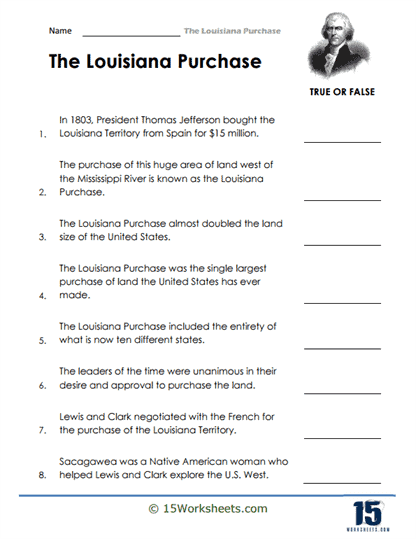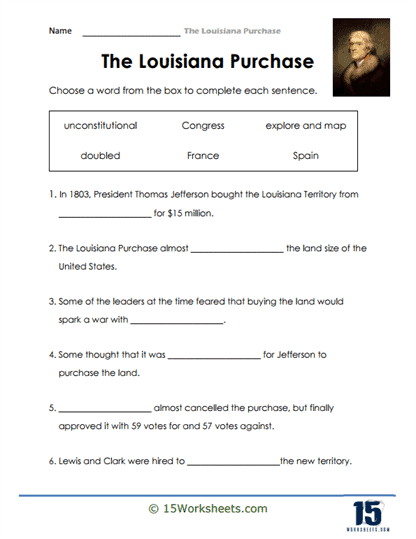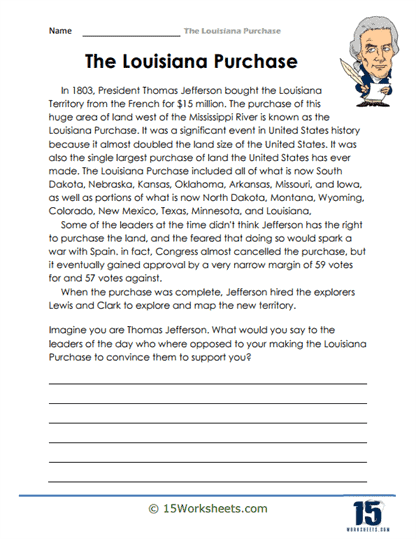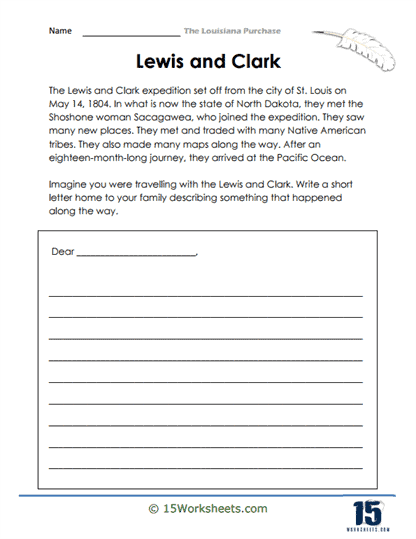Louisiana Purchase Worksheets
All About These 15 Worksheets
This series of 15 worksheets is designed to introduce students to one of the most significant land acquisitions in U.S. history, the Louisiana Purchase. Through engaging activities and thought-provoking exercises, students will gain a deeper understanding of the Louisiana Purchase, its historical context, the key figures involved, and the impact it had on the development of the United States. Through these worksheets, students will:
- Explore the historical background leading up to the acquisition, the motivations behind it, and the geographical significance of the territory;
- Identify the pros and cons of the Louisiana Purchase;
- Investigate the famous Lewis and Clark Expedition, which was commissiveoned by President Jefferson to explore the newly acquired territory;
- Examine the stand of the opposition, their reasons, and their efforts in blocking the purchase;
- Analyze whether the purchase was constitutional;
- Synthesize all that they’ve learned by creating their own infographic detailing the key people and controversies;
- And hone their creativity by putting themselves in the shoes of the key people who witnessed the historic event.
Engaging with this series of worksheets will transport students to a pivotal moment in American history, fostering a deep understanding of the Louisiana Purchase and its impact on the nation’s development. Through a variety of exercises and creative activities, students will develop critical thinking skills, historical empathy, and a greater appreciation for the complexities and consequences of territorial expansion. Overall, this series aims to inspire students to reflect on the challenges and opportunities presented by the Louisiana Purchase, and its lasting influence on the growth and identity of the United States.
What was the Louisiana Purchase?
The Louisiana Purchase was a land acquisition by the United States from France in 1803, which significantly expanded the size of the country. The purchased territory included approximately 828,000 square miles (2,144,500 square kilometers) of land, stretching from the Mississippi River in the east to the Rocky Mountains in the west, and from the Gulf of Mexico in the south to the Canadian border in the north.
Why Was It Significant?
The Louisiana Purchase is historically significant for several reasons:
Doubling the size of the United States
The acquisition of the Louisiana Territory effectively doubled the size of the United States, providing vast new lands for settlement, agriculture, and development. The purchase laid the foundation for westward expansion and the eventual establishment of new states in the region.
Strategic and Economic Benefits
Gaining control of the Mississippi River and the port of New Orleans was crucial for the United States, as it allowed for the unimpeded movement of goods from the western territories to the Atlantic coast. This facilitated trade, economic growth, and the overall prosperity of the nation.
Diplomatic Achievement
The Louisiana Purchase is considered one of the greatest diplomatic achievements in American history. President Thomas Jefferson and his administration successfully negotiated the acquisition of the territory from France, led by Napoleon Bonaparte, for a price of $15 million (about 3 cents per acre). This was a remarkably good deal for the United States, considering the vast size and resources of the acquired lands.
Setting a Precedent
The Louisiana Purchase established a precedent for future land acquisitions by the United States, such as the Oregon Territory, the Mexican Cession, and the Gadsden Purchase. These acquisitions contributed to the country’s growth and the fulfillment of its “Manifest Destiny”-the belief that the United States was destined to expand across the North American continent.
Challenges and Controversies
The Louisiana Purchase also raised several challenges and controversies, particularly concerning the constitutionality of the acquisition and the future status of slavery in the new territories. The purchase forced the country to confront difficult questions about the balance of power between the federal government and the states, as well as the moral and political implications of expanding slavery into newly acquired territories.
In summary, the Louisiana Purchase is historically significant because it dramatically expanded the size of the United States, provided strategic and economic benefits, showcased diplomatic prowess, set a precedent for future land acquisitions, and raised important questions about the nation’s political and social development.

